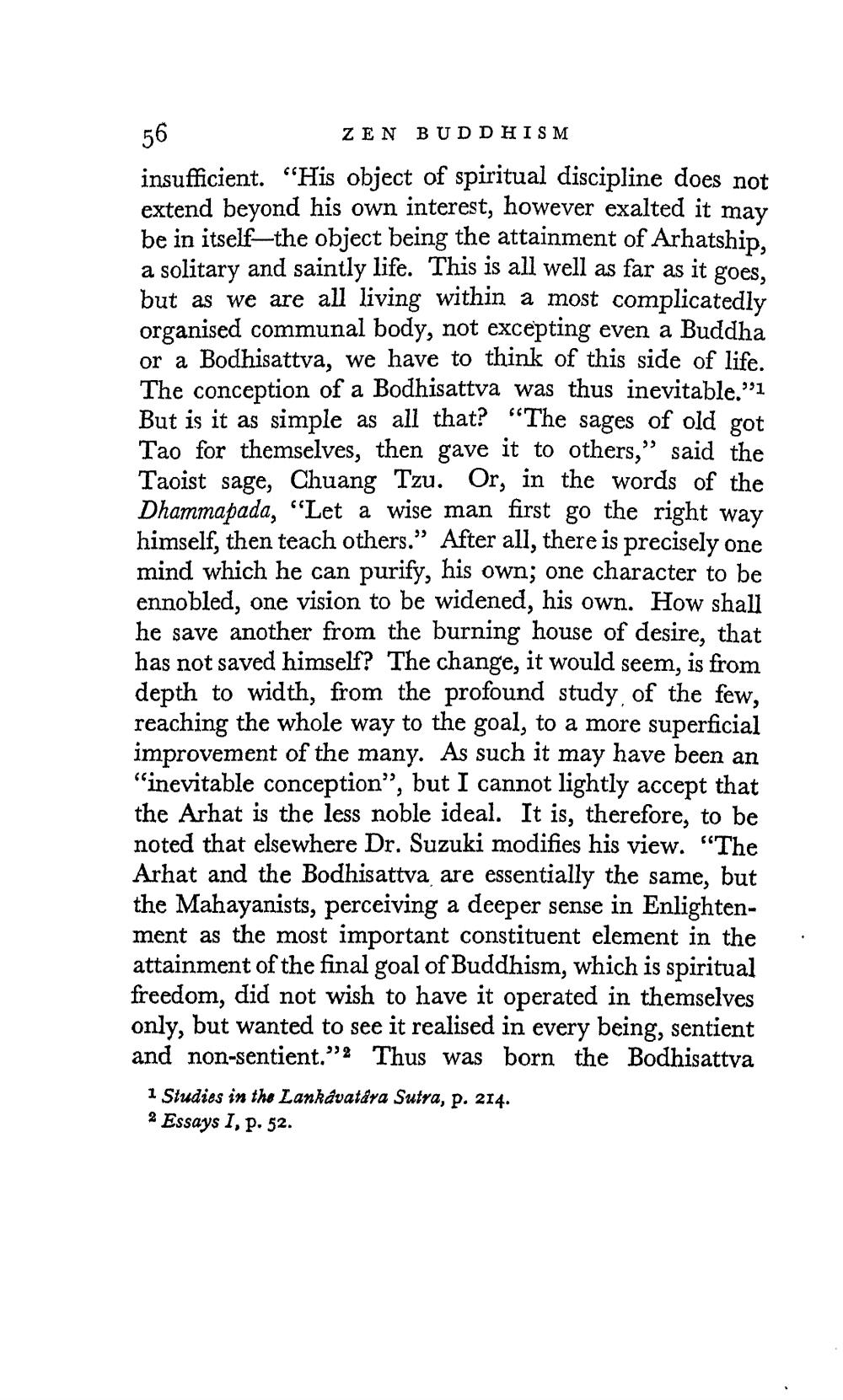________________
ZEN BUDDHISM insufficient. “His object of spiritual discipline does not extend beyond his own interest, however exalted it may be in itself-the object being the attainment of Arhatship, a solitary and saintly life. This is all well as far as it goes, but as we are all living within a most complicatedly organised communal body, not excepting even a Buddha or a Bodhisattva, we have to think of this side of life. The conception of a Bodhisattva was thus inevitable.”l But is it as simple as all that? “The sages of old got Tao for themselves, then gave it to others," said the Taoist sage, Chuang Tzu. Or, in the words of the Dhammapada, “Let a wise man first go the right way himself, then teach others." After all, there is precisely one mind which he can purify, his own; one character to be ennobled, one vision to be widened, his own. How shall he save another from the burning house of desire, that has not saved himself? The change, it would seem, is from depth to width, from the profound study of the few, reaching the whole way to the goal, to a more superficial improvement of the many. As such it may have been an "inevitable conception”, but I cannot lightly accept that the Arhat is the less noble ideal. It is, therefore, to be noted that elsewhere Dr. Suzuki modifies his view. "The Arhat and the Bodhisattva are essentially the same, but the Mahayanists, perceiving a deeper sense in Enlightenment as the most important constituent element in the attainment of the final goal of Buddhism, which is spiritual freedom, did not wish to have it operated in themselves only, but wanted to see it realised in every being, sentient and non-sentient.". Thus was born the Bodhisattva
1 Studies in the Lankavatdra Sutra, p. 214. 2 Essays I, p. 52.




